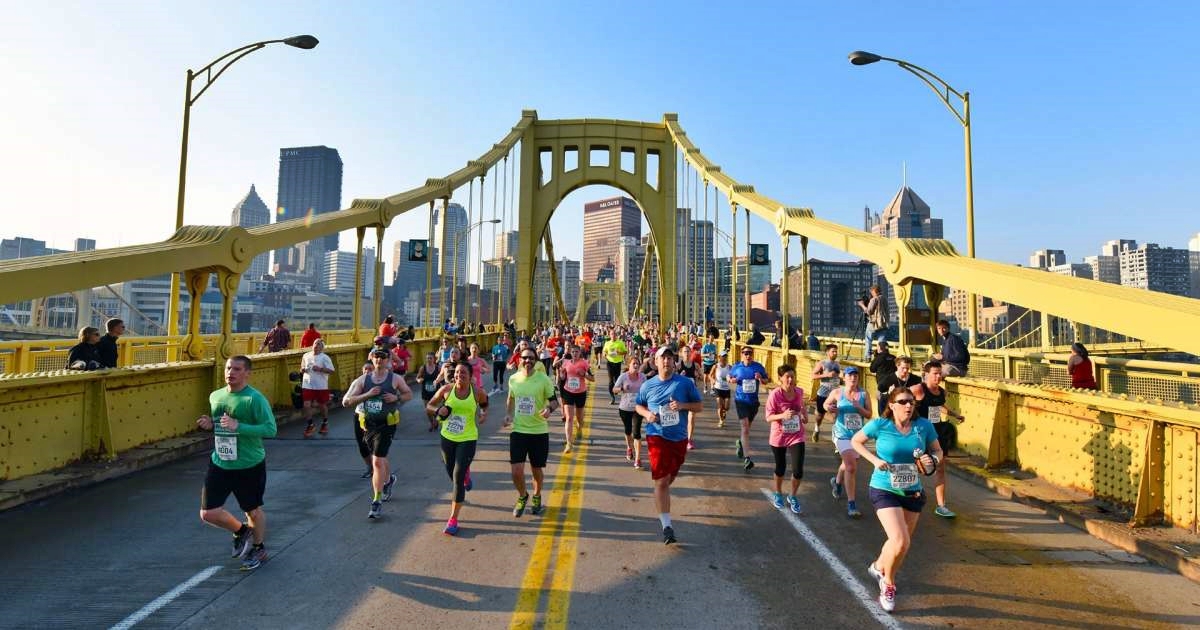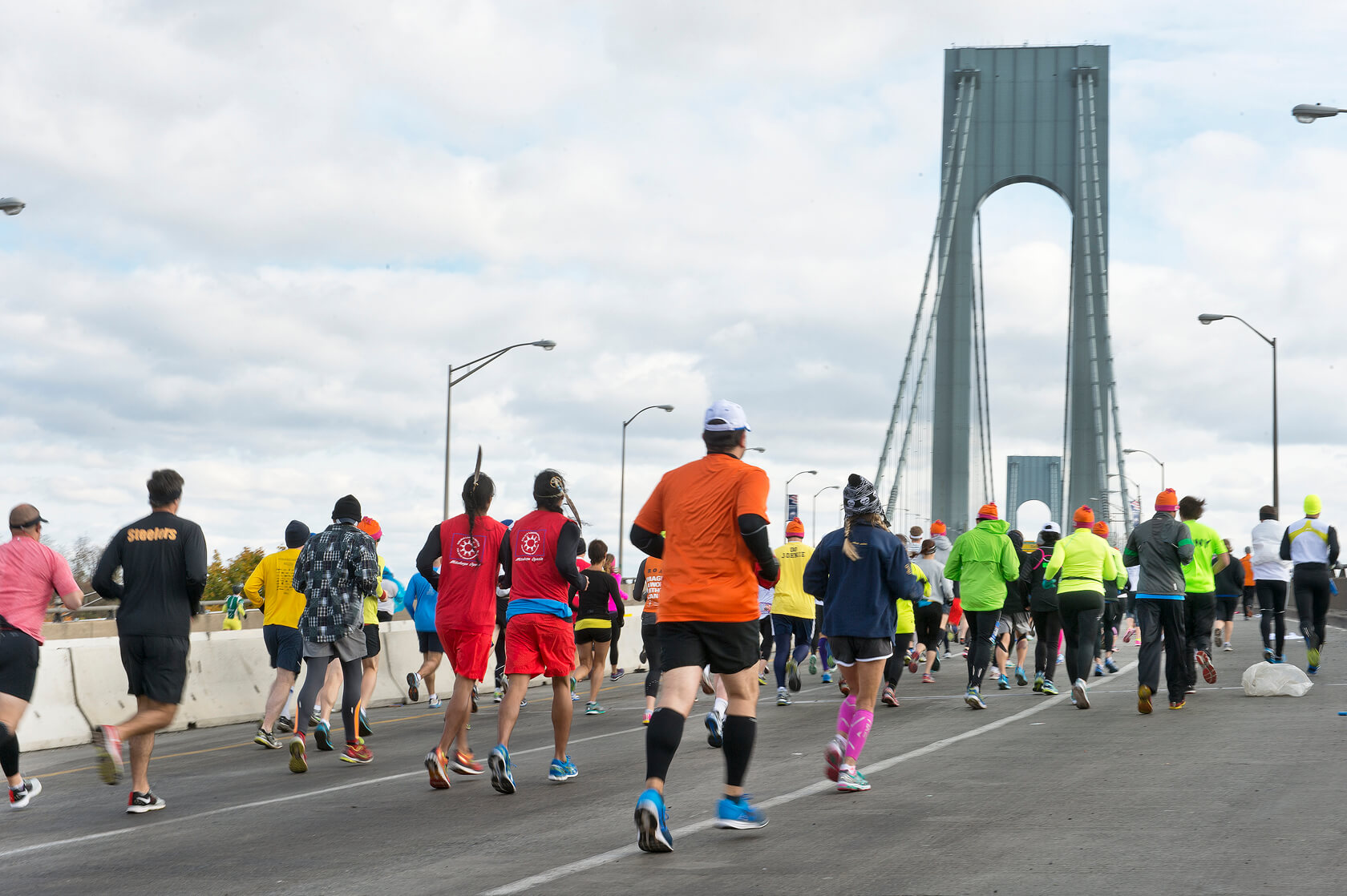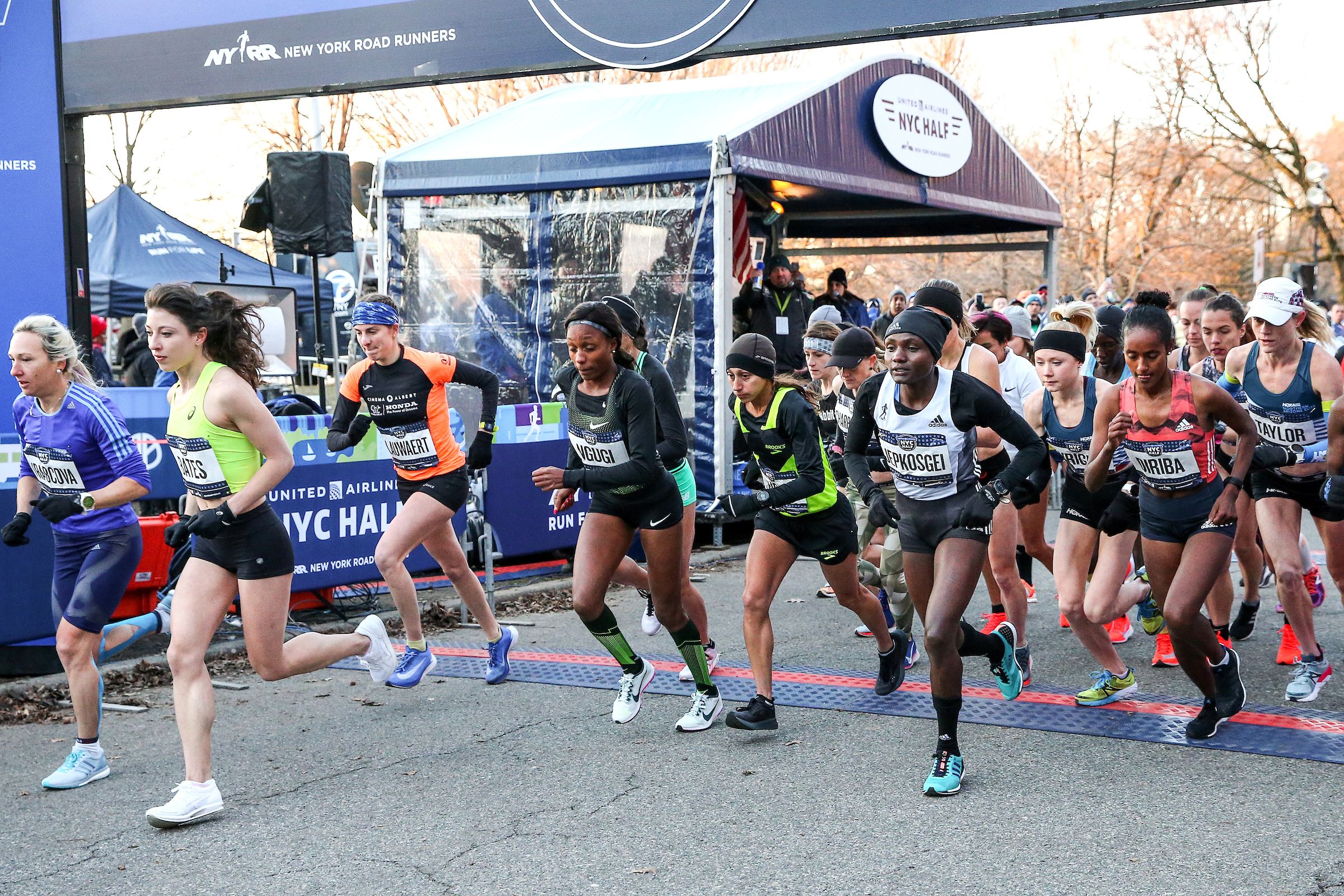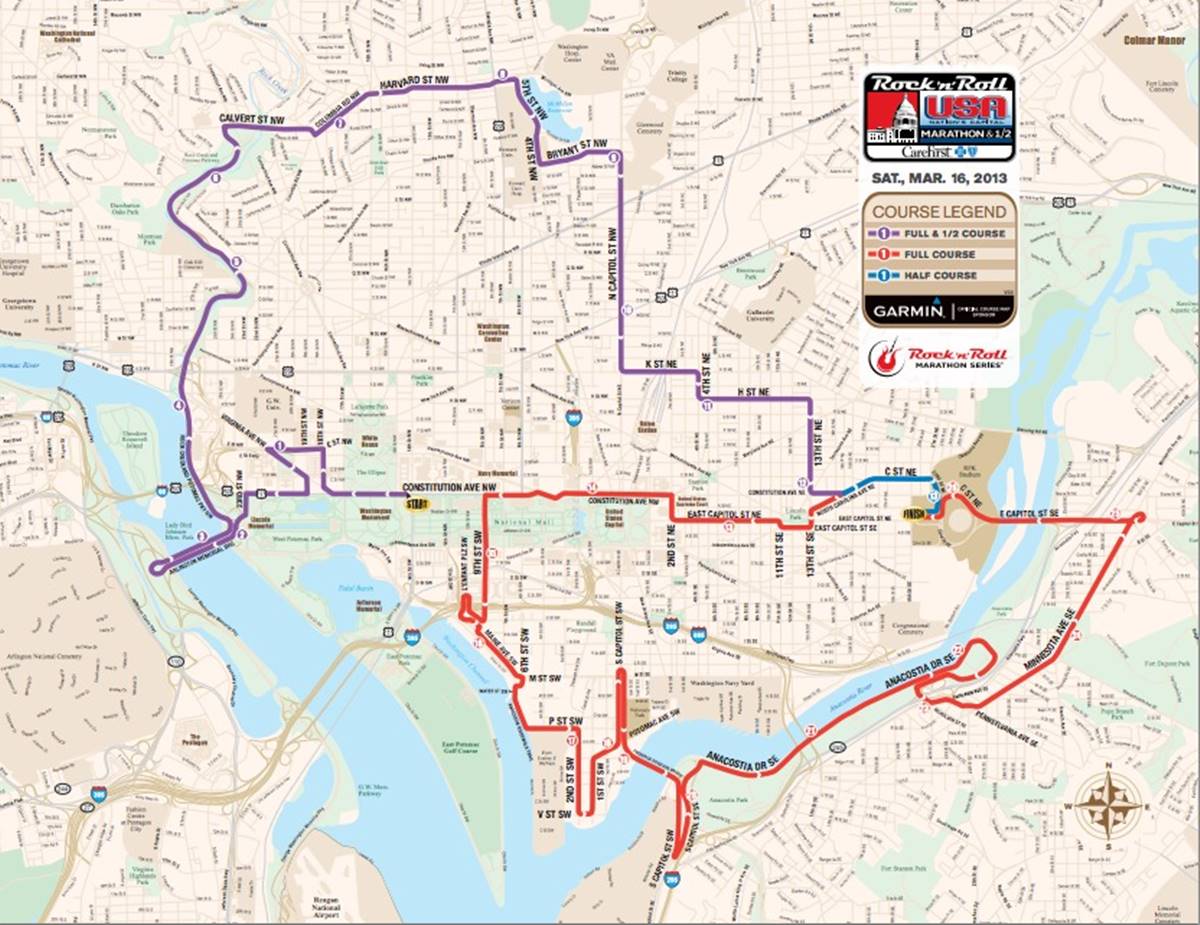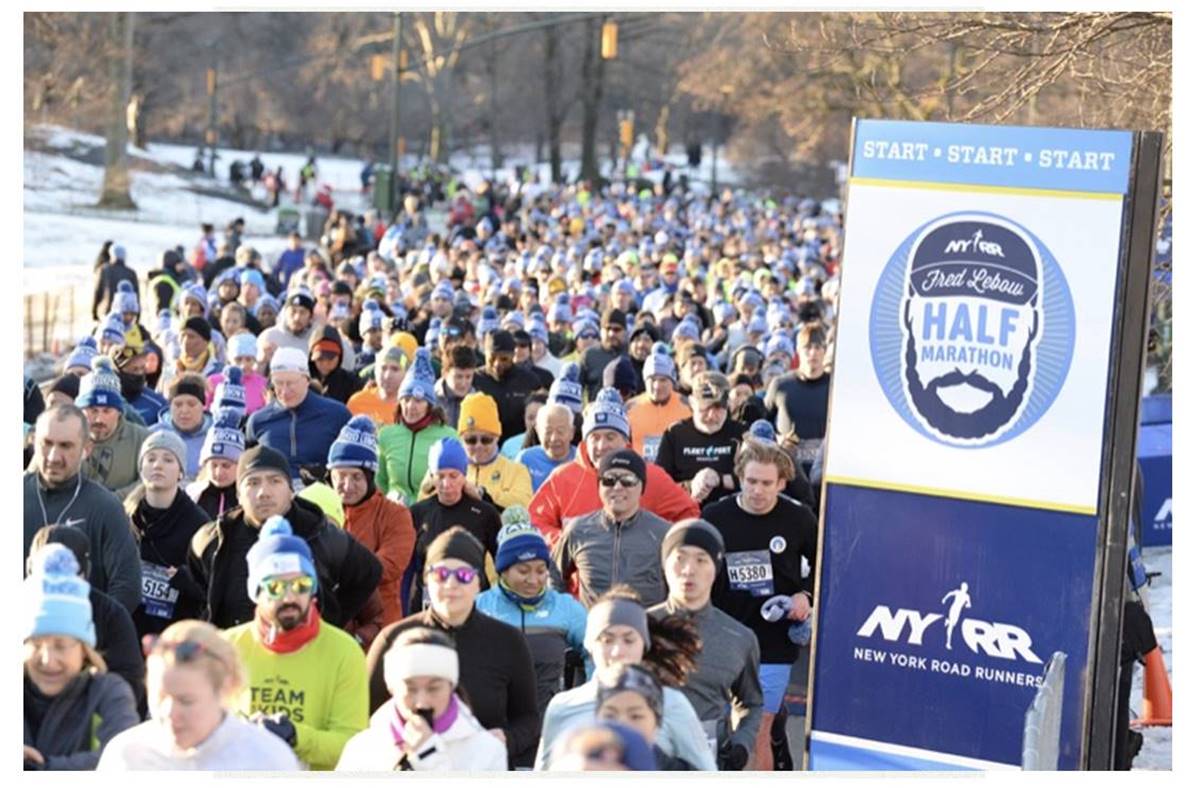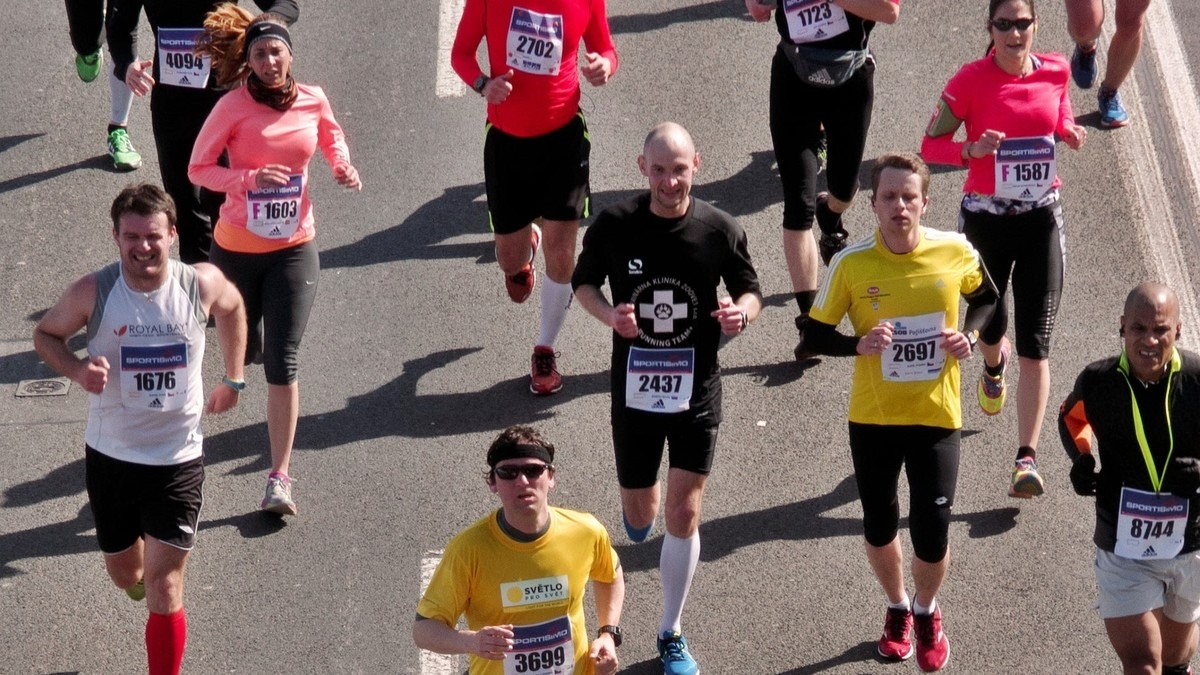

Featured
How Much Does A Half Marathon Cost
Modified: August 21, 2023
Discover the featured half marathon cost in our comprehensive guide. Find out the expenses associated with training, registration fees, and more.
Introduction
Welcome to the exciting world of half marathons! Whether you’re a seasoned runner or someone looking to push your limits and embrace a new challenge, participating in a half marathon can be a rewarding experience both physically and mentally. However, before lacing up your running shoes and hitting the pavement, it’s important to understand the various costs associated with this popular race distance.
A half marathon is a 13.1-mile race that attracts runners of all levels, from beginners to elite athletes. As you embark on this journey, it’s crucial to consider the financial aspects to ensure you are prepared for the expenses ahead.
From registration fees to training programs and race day essentials, there are several factors to consider when calculating the overall cost. In this article, we will explore the various components that contribute to the total cost of participating in a half marathon, giving you a comprehensive understanding of what to expect before diving into the world of half marathon running.
It’s important to note that half marathon costs can vary significantly depending on factors such as location, race type, and level of amenities provided. It’s essential to research and plan accordingly to ensure you have a realistic budget in place.
Now, let’s dive into the different elements that contribute to the overall cost of completing a half marathon. From race registration fees to post-race celebrations, we’ll explore each aspect, giving you a better understanding of the financial investment required.
Registration Fees
One of the primary costs associated with participating in a half marathon is the registration fee. This fee covers your entry into the race and typically ranges from around $50 to $200, depending on the race’s size, location, and prestige.
It’s important to keep in mind that registration fees often increase as the race date approaches, so signing up early can help you secure a lower fee. Many races also offer early bird discounts or promotional codes that can help offset the cost.
In addition to the base registration fee, some races may have additional charges for services like timing chips, race bibs, or race day insurance. These fees are usually optional but can enhance your race experience and provide additional support.
It’s also important to consider the refund and transfer policy of the race you are registering for. Some races offer the option to transfer your registration to another runner or defer it to the following year in case of unforeseen circumstances. However, these services may come with an additional fee.
Lastly, don’t forget to factor in any processing fees associated with online registration platforms. These fees are typically a small percentage of the total registration cost but can add up, especially if you’re registering for multiple races throughout the year.
Overall, when you consider all the potential fees associated with registration, it’s important to budget for not only the base registration cost but also any additional services or fees that might be applicable to the race you choose.
Race Swag
One of the perks of participating in a half marathon is the race swag, also known as the goodies and giveaways provided to participants. This can vary from race to race but often includes items such as t-shirts, medals, and personalized bibs.
The t-shirt is a staple in most races and serves as a badge of honor for completing the event. These shirts are typically made of high-quality technical fabric, designed to keep you cool and comfortable during your run. Additionally, they often feature unique race artwork or logos, making them a great souvenir to commemorate your achievement.
Medals are another cherished item in the world of half marathons. The race organizers typically design and distribute custom medals to all finishers as a symbol of their accomplishment. These medals vary in size and design, with some showcasing intricate details and others opting for a more minimalist approach. Either way, they serve as a tangible reminder of the hard work and dedication put into training for and completing the race.
In addition to t-shirts and medals, some races offer personalized bibs that display your name or a custom message. This adds a personal touch and can make your race experience even more memorable. It’s important to check whether these personalized bibs are included in the race registration fee or if they come at an additional cost.
While race swag is certainly a fun bonus, it’s important to note that some races may offer more extensive swag packages than others. Higher-entry fee races or races with corporate sponsors often provide additional items such as water bottles, keychains, or even gift certificates for local businesses.
Ultimately, the race swag provided can vary widely, but it’s always a delightful surprise to receive a tangible reward for your hard work and dedication. So, be sure to check what goodies you’ll be receiving when you register for your half marathon.
Accommodation and Transportation
When participating in a half marathon, especially if it’s in a different city or involves travel, it’s important to consider the costs associated with accommodation and transportation.
Accommodation expenses will largely depend on the location of the race and the duration of your stay. If the race is in a popular destination or during peak travel season, hotel prices may be higher. It’s advisable to book your accommodation well in advance to secure the best rates. Alternatively, you can explore options like rental homes, Airbnb, or staying with local friends or family to save on costs.
Transportation costs can also vary depending on whether you’re driving, flying, or using public transportation. If you’re driving, factor in fuel costs, tolls, and parking fees. If you’re flying, compare prices for flights and consider baggage fees if you’re bringing your running gear. Public transportation, such as buses or trains, may offer a more affordable option, but be sure to account for any additional fees or transfers required.
If the race is in a different city or far from your home, you may also need to budget for meals during your stay. Look for accommodations with kitchenettes or consider packing some snacks and light meals to reduce dining expenses.
When planning your transportation and accommodation, it’s vital to consider the logistics of race day as well. Check if the race provides shuttle services from select hotels or if you’ll need to arrange for transportation separately. It’s also crucial to factor in any parking fees or public transportation costs on race day.
Overall, accommodation and transportation costs can significantly impact your budget for a half marathon. It’s important to research and plan ahead, considering all the necessary expenses and finding ways to minimize costs without sacrificing convenience and comfort.
Training Programs
Preparing for a half marathon requires a dedicated training program to ensure you’re physically and mentally ready for the race. While training programs can be customized based on individual goals and preferences, there may be associated costs to consider.
If you’re a beginner and new to running, you may consider joining a structured training program or hiring a running coach. These programs or coaches can provide you with a training plan tailored to your fitness level, help you build endurance, and guide you on proper running techniques. The cost of these programs can vary depending on the duration and level of support provided. However, they can be a valuable investment to ensure you’re training effectively and minimizing the risk of injury.
In addition to formal training programs, there are also many free or low-cost resources available online. Websites, apps, and social media platforms offer training plans, tips, and guidance from experienced runners. These resources can be a great option for those on a tighter budget or who prefer a more flexible approach to their training.
It’s important to remember that training for a half marathon requires more than just running. You may need to invest in proper running shoes and clothing to ensure comfort and reduce the risk of injuries. Additionally, consider any gym memberships, fitness classes, or equipment for cross-training activities that can complement your running routine.
As part of your training, you may also want to participate in shorter races or organized group runs to build your confidence and gauge your progress. While these events may have registration fees, they can be a valuable opportunity to gain race experience and connect with the running community.
It’s essential to budget for training-related expenses as they play a crucial role in your preparation for a half marathon. By investing in a solid training plan and necessary resources, you can increase your chances of a successful and enjoyable race day experience.
Dietary and Nutritional Needs
When training for a half marathon, it’s important to pay attention to your dietary and nutritional needs. Proper nutrition can enhance your performance, support your overall health, and aid in recovery. However, it’s essential to consider the potential costs associated with maintaining a healthy eating plan.
One of the key factors to consider is the quality of the food you consume. Fueling your body with nutritious and energy-boosting foods will help optimize your training and race day performance. Fresh fruits and vegetables, lean proteins, whole grains, and healthy fats should be included in your diet. These nutrient-dense foods may come at a higher cost but will provide the essential vitamins, minerals, and antioxidants your body needs.
Depending on your dietary preferences, you may also need to factor in the cost of specialty foods or supplements. For example, if you follow a vegetarian or vegan diet, you may need to invest in plant-based protein sources or vitamin B12 supplements. Similarly, some athletes may benefit from sports drinks or energy gels during longer runs, which can add to the overall cost.
It’s also important to consider hydration. Staying properly hydrated is crucial for your overall performance and recovery. This may include purchasing water bottles, electrolyte drinks, or investing in a hydration pack for longer training runs.
While it’s essential to prioritize nutritious foods, it’s also important to budget for occasional treats or indulgences. Allowing yourself the occasional splurge can help maintain a balanced approach to your nutrition and keep you motivated during your training.
In some cases, it may be beneficial to consult with a registered dietitian or nutritionist to optimize your eating plan and ensure you’re meeting your unique dietary needs. While this may come at an additional cost, their expertise can provide personalized guidance and help you achieve your performance and health goals.
Overall, being mindful of the nutritional aspects of training for a half marathon can contribute to your success on race day. By budgeting for nutritious foods and potentially seeking professional guidance, you can fuel your body effectively and enhance your overall performance and well-being.
Medical Expenses
While participating in a half marathon is generally a safe and rewarding experience, it is important to consider potential medical expenses that may arise during your training and on race day.
One of the main costs to consider is a visit to your healthcare provider. Before starting a rigorous training program, it’s advisable to undergo a medical check-up to ensure you’re in good health and capable of handling the physical demands of training for a half marathon. This may include a physical examination, blood tests, or other diagnostic procedures. The cost of these visits will depend on your insurance coverage and any co-pays or deductibles associated with your healthcare plan.
Another potential medical expense to consider is injury prevention and treatment. Running long distances can put stress on your body, increasing the risk of injuries such as sprains, strains, or shin splints. It’s essential to invest in the proper running shoes, orthotics, or other supportive equipment to reduce the risk of injury. If an injury does occur, you may need to seek medical attention from a sports medicine specialist or physical therapist. These services may come with a cost, especially if they are not covered by your insurance.
If you have a pre-existing medical condition or take regular medications, it’s important to account for the cost of managing these during your training and race day. This may include the cost of prescription medications, regular doctor visits, or additional medical supplies.
Additionally, race organizers typically provide medical support on race day, including medical stations along the course and trained medical personnel. While these services are often included in the race registration fee, it’s important to be mindful of any potential emergency medical expenses that may arise.
As part of your preparation, it’s crucial to review your health insurance coverage and understand what medical expenses may be covered. Ensure you have proper coverage in case of any unforeseen circumstances.
While medical expenses can add to the overall cost of participating in a half marathon, prioritizing your health and taking precautionary measures can help minimize the risk of medical emergencies and ensure a safe and enjoyable race day experience.
Race Photos
One aspect that many runners look forward to after completing a half marathon is the opportunity to purchase race photos. These professional photos serve as a lasting memory of your accomplishment and can be a great way to commemorate your hard work and dedication.
During the race, professional photographers are stationed at various points along the course to capture candid moments and key milestones. They often take both individual and group shots, allowing you to showcase your achievement and capture the energy and excitement of the race.
However, race photos come at an additional cost. The price of race photos varies depending on the race and the photography company hired to capture the event. Typically, you can choose from digital downloads, prints, or packages that include multiple photos at a discounted rate.
While race photos may seem like a discretionary expense, many runners appreciate the opportunity to preserve their race day memories. It’s important to consider this cost when budgeting for your half marathon experience.
If you’re looking to save money, some races offer discounted pre-purchase options, allowing you to buy the photos at a lower price before the race takes place. Additionally, keep an eye out for promotional codes or discounts that may be offered by the photography company or race organizers.
Remember, race photos are not mandatory, and it’s up to you to decide if they are worth the additional expense. If you’re on a tight budget, you can always rely on the memories you create during the race and capture your own photos with friends and family at the finish line.
Ultimately, race photos offer a unique way to celebrate and remember your half marathon journey. Whether you choose to invest in them or not, the memories and sense of accomplishment will always stay with you.
Post-Race Celebrations
Completing a half marathon is an incredible achievement, and it’s common for runners to engage in post-race celebrations to commemorate their accomplishment and unwind after months of training and preparation.
Post-race celebrations can take various forms, depending on personal preferences and the atmosphere of the event. Some runners choose to celebrate with family and friends by organizing a small gathering or dinner party. This provides an opportunity to reflect on the race, share stories, and enjoy each other’s company.
Others may prefer to indulge in well-deserved treats or meals at local restaurants or cafes. After weeks of maintaining a specific diet and training regimen, enjoying a satisfying post-race meal can be a delightful way to reward yourself. However, it’s important to consider that dining out can add to the overall cost, so it’s wise to budget for this expense.
In some cases, race organizers may also host post-race celebrations or award ceremonies, offering a festive atmosphere for participants to enjoy. These celebrations may include live music, food vendors, and entertainment. While these events are typically included in the race registration fee, it’s important to check if any additional expenses, such as food or merchandise, are separate from the entry fee.
Additionally, you may want to celebrate your achievement by purchasing race-related merchandise or memorabilia. This can include items such as hats, shirts, or commemorative medals. While these purchases are optional, they can serve as tangible reminders of your half marathon experience.
Lastly, taking time to relax and recover after the race is crucial to avoid burnout and allow your body to heal properly. This can mean treating yourself to a spa day, getting a massage, or simply enjoying some downtime and self-care activities. While these activities may incur a cost, they are essential in ensuring a successful recovery and maintaining your physical and mental well-being.
The expenses associated with post-race celebrations can vary depending on individual preferences and the scale of the event. It’s important to plan ahead and budget for these costs, ensuring that you can fully enjoy and commemorate your accomplishment without any financial stress.
Conclusion
Participating in a half marathon is a thrilling and fulfilling experience that requires careful consideration of the associated costs. By understanding the various expenses involved, you can plan and budget accordingly to ensure a smooth and enjoyable journey.
In this article, we have explored different aspects that contribute to the overall cost of participating in a half marathon. From registration fees and race swag to accommodation, transportation, and training programs, each component plays a significant role in the financial investment required for this athletic endeavor.
It’s crucial to research and plan ahead, taking into account expenses such as dietary and nutritional needs, medical expenses, the cost of race photos, and post-race celebrations. By assessing these factors, you can ensure that you set realistic expectations and avoid any financial surprises.
Remember, while participating in a half marathon may require financial commitment, the rewards and sense of accomplishment that come with crossing the finish line are priceless. It’s an opportunity to challenge yourself, embrace a healthier lifestyle, and connect with a supportive community of fellow runners.
Ultimately, participating in a half marathon is an investment in your physical and mental well-being. By understanding and preparing for the costs involved, you can embark on this journey with confidence, knowing that you are well-prepared for the adventure that awaits you on race day.
